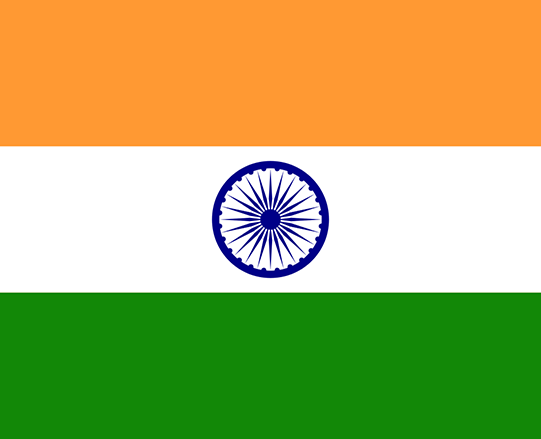A law that criminalised consensual same-sex activity between adults has been ruled unconstitutional by India’s Supreme Court, in a unanimous decision handed down by a five-judge bench today in New Delhi.
Section 377 of the Indian Penal Code, which was enacted in 1860 under the British colonial regime, criminalised ‘carnal intercourse against the order of nature,’ leading to over a century and a half of discrimination and persecution against members of the lesbian, gay, bisexual and trans (LGBT) community.
The ruling affirms the rights of LGBT people to be protected equally under the Constitution, and the rights of consenting adults to conduct their private lives without government interference.
In one particularly significant section, the judges noted,
‘The Court has to be guided by the conception of constitutional morality and not by the societal morality.’
The Court also made an explicit and unequivocal statement on the right to equality of all citizens in India.
‘The LGBT community possess the same human, fundamental and constitutional rights as other citizens do since these rights inhere in individuals as natural and human rights. We must remember that equality is the edifice on which the entire non-discrimination jurisprudence rests. Respect for individual choice is the very essence of liberty under law and, thus, criminalizing carnal intercourse under Section 377 IPC is irrational, indefensible and manifestly arbitrary.’
Respect for individual choice is the very essence of liberty under law and, thus, criminalizing carnal intercourse under Section 377 IPC is irrational, indefensible and manifestly arbitrary.
Téa Braun, Director of The Human Dignity Trust (HDT), said,
‘This is not just another court ruling; its significance cannot be underestimated. It upholds the right to freedom and equality of LGBT people in the second most populous country on earth, and a leading member of the Commonwealth. With this judgment, one fifth of all LGBT people globally are no longer unapprehended felons. The judgment will echo not only in India, but in the many other countries around the world where efforts to decriminalise consensual same-sex activity are ongoing.’
The petitioners in the case include artists, journalists and business people. The original litigation challenging section 377, which commenced as far back as 2001, was initiated by visionary civil society activists through the local organisation Naz Foundation.
‘We salute the tenacity and determination of all those in India who were brave enough to demand the right to be free from state-sponsored discrimination in the country’s highest court. They are an inspiration to the Human Dignity Trust, and to all those who seek respect for human rights around the world,’added Braun.
There are still 73 jurisdictions around the world that maintain laws criminalising private, consensual sexual conduct between adults of the same sex. Of these, 35 are in the Commonwealth, and retain antiquated and discriminatory laws, most of which originate from British colonial times.
Notes to editors
The Human Dignity Trust is a UK charitable organisation of international lawyers supporting local human rights defenders to challenge laws criminalising LGBT people, wherever such laws exist in the world, through the courts. Laws that criminalise LGBT people foster and perpetuate serious and systematic human rights violations and violate international human rights law.
See the full judgment from the Supreme Court. A case summary is available in the Trust’s library.
For more information contact:
Téa Braun, Director, HDT
T: +44 (0)20 7419 3773
E: [email protected]
Twitter: @teabraun
Emma Eastwood, Head of Strategic Communications, HDT
T: +44 (0)207 242 2248
E: [email protected]
Twitter: @HumanDignityT

